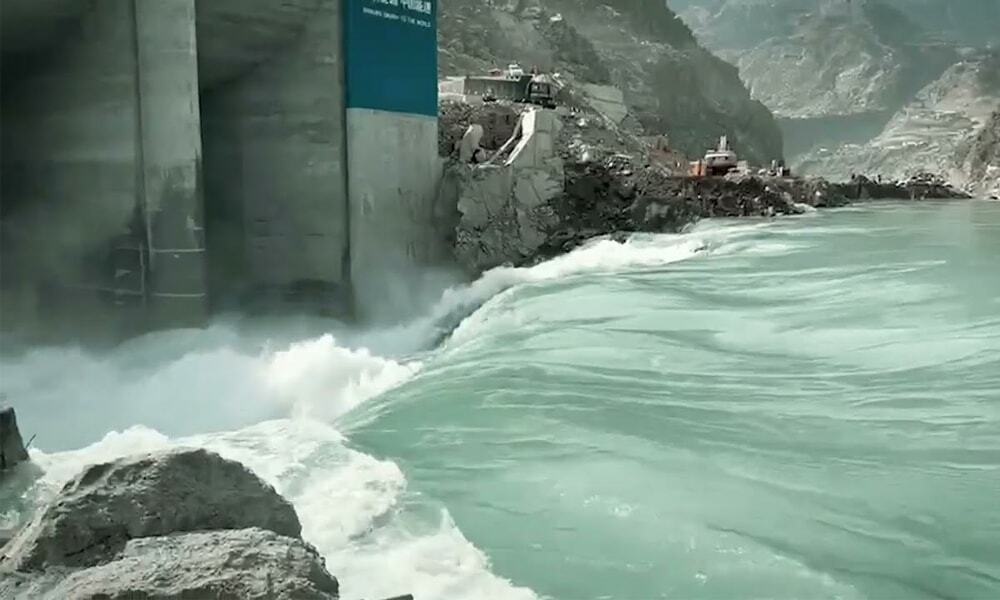The construction of the Dasu Hydropower Project (DHP) in Pakistan is set to redefine the country’s energy landscape.
With a towering height of 242 meters (794 feet) and a planned capacity of 4,320 MW, this ambitious project will unfold in two phases, each generating 2,160 MW of electricity.
The project’s expected completion by July 2027 marks a significant milestone in Pakistan’s pursuit of sustainable energy sources, aimed at reducing reliance on fossil fuels and fostering energy independence.
Slower Progress Due to Challenges
Despite the project’s potential to serve as a game-changer in Pakistan’s energy sector, the development has faced significant hurdles.
Last month, the Ministry of Economic Affairs publicly expressed serious concerns about the delayed progress, primarily attributed to bureaucratic bottlenecks.
The formal agreement for an additional financing package of $1 billion remains stalled due to delays in securing approval for the revised PC-1 by the Water and Power Development Authority (Wapda).
One of the key impediments to the project’s swift advancement is the restriction on ground transportation.
Due to these constraints, international experts and workers required for the construction are unable to move freely from Islamabad to Dasu, causing bottlenecks in the project’s execution.
Moreover, a shortage of armored vehicles within the project zones further hampers the movement of personnel, delaying crucial site activities.
World Bank’s Concern Over Slow Progress
A World Bank Mission, which visited Pakistan from September 2-13, 2024, assessed the situation firsthand and expressed dismay at the slow progress of the Dasu Hydropower Project.
The mission was alarmed by the lack of effective coordination and the extended timeline for the project’s key milestones.
During the visit, the mission held critical meetings with Pakistan’s Ministry of Water Resources, Ministry of Energy (Power Division), Water and Power Development Authority (Wapda), and National Transmission and Dispatch Company (NTDC) to get clarity on the ground realities and provide actionable recommendations.
Scheduled to return in February–March, the mission team, led by Gunjan Gautam, a Senior Energy Specialist, aims to have direct dialogues with key stakeholders.
Key Objectives of the Mission
The World Bank’s next mission will focus on a multi-pronged approach to address the challenges affecting the Dasu Hydropower Project. The key objectives include:
- Techno-Economic Studies Review: Discussing the review of techno-economic studies conducted by USAID for the priority transmission projects and identifying the next actionable steps for successful implementation.
- Feasibility Study for Matiari-Moroline: Engaging with EAD, Ministry of Energy (Power Division), NTDC, and other stakeholders to discuss the feasibility study for the Matiari-Moroline project, ensuring that its scope and requirements align with the long-term energy needs of Pakistan.


